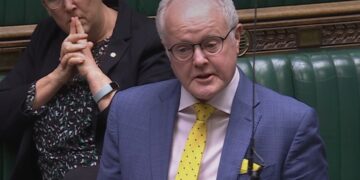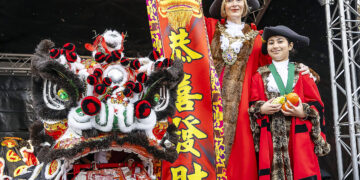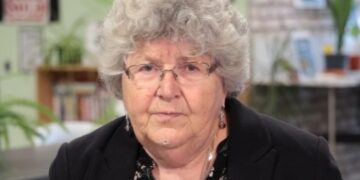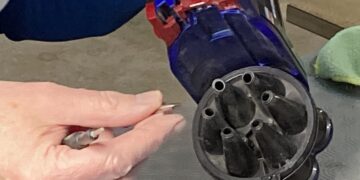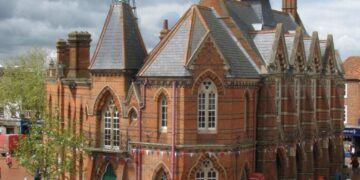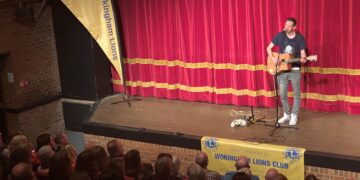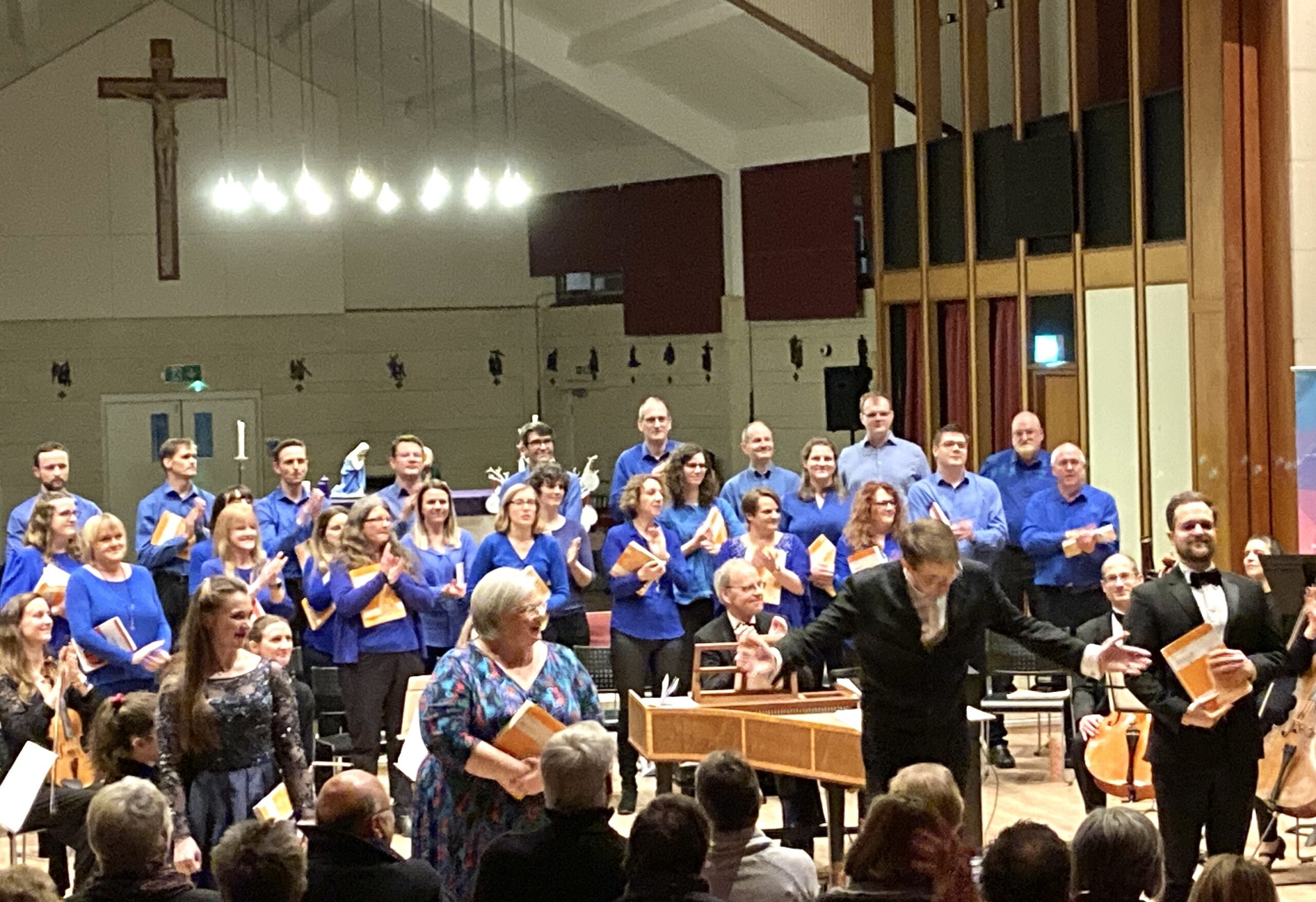WHILE England were battling for a place in the World Cup Quarter Finals, a concert that was possibly the game’s polar opposite took place at St Joseph’s College, Reading.
Both events had at least one thing in common.
They were skillful, exciting and uplifting – albeit for very different reasons.
While the game played out in Qatar, two Berkshire chamber groups came together for a performance that was both festive and enriching.
Aldworth Philharmonic Orchestra’s chamber group, and Tamesis Chamber Choir performed to a full house.
They gave their appreciative audience a joyful and rousing presentation of Handel’s Messiah.
Both organisations seek not only to produce work of a high standard, but also to make classical music accessible, enjoyable, welcoming and memorable for both performers and audience members.
They describe working together as ‘a match made in heaven’, and this performance was indeed heavenly.
The Messiah is often performed by much larger musical groups.
Here, the audience could enjoy a sound that was closer to the original intentions of the composer.
It was light, crisp, and a more intimate experience than a full-scale performance might allow.
There were just 28 singers in Tamesis’ choir, and 20 members of the (mostly strings) Aldworth chamber orchestra.
They were joined by professional vocal soloists: soprano Anna Gregg (who at short notice replaced unwell soprano Ellie Neate), mezzo-soprano Elinolr Carter, tenor Will Searle, and bass Alex Jones.
Performances across the board were highly skilled, passionate and memorable.
Handel’s oratorio is divided into three parts.
Part one describes the prophecies of Christ’s birth.
Its joyful renditions of hope and good news include the well known chorus For Unto Us A Child Is Born.
Angel voices bring good news to the shepherds, with waves of choral melodies that rise and fall in complex patterns.
Part two tells of Christ’s passion, crucifixion, resurrection and ascension.
More dramatic than part one, it describes the taunts and derision of the rejecting crowds, and pours out deep regret in, Why Do The Nations (Rage So Furiously Together?)
Then faith is declared, despite human failings, with trumpet and drums adding to the choral blaze of the Hallelujah chorus.
Audiences traditionally stand for this, and the Reading concert was no exception.
The habit of standing was started, it is said, by King George II who, the story goes, was so moved on hearing the London premier of the piece in 1743 that he rose to his feet.
When the king stood, so did everyone else.
It’s a nice story, and it may indeed be true, but evidence is scant for the king’s attendance at the event.
Part three is shorter, but filled with some of Handel’s most radiant music, including the soprano aria, I Know That My Redeemer Liveth, and the final Amens which bring the concert to a powerful and uplifting end.
Astonishingly, Handel wrote the piece in 24 days.
A mix of choral writing, solo arias and orchestral sections, it passes seamlessly from one to the other, as the themes unfold.
The Aldworth Orchestra wove an elegant Baroque tapestry of colourful rhythms and melodies throughout the work, with a light and nimble touch.
They kept the music moving at a lively pace, and produced a pleasing, warm and authentic sound.
Tamesis choir created a rich and powerful sound.
They navigated complex waves of arpeggios cleanly, and accurately, with crisp diction, attention to detail, and an impressive emotional range.
And the four excellent vocal soloists added warmth, drama, relationship and passion to the evening.
Their superb voices and sustained engagement with the audience made for an evening not to be forgotten.
‘We shall be changed’, sang the choir.
If buzz from the audience as they left the auditorium was anything to go by, it is likely that many were indeed enriched, uplifted, and perhaps event changed by the memorable performance.
For information about Aldworth Symphony Orchestra visit: www.aldworthphilharmonic.org.uk
For information about Tamesis Choir visit: www.tamesischamberchoir.com
For information about the four soloists visit: Anna Gregg soprano www.annagregg.com Elinor Carter mezzo soprano www.elinorcarter.wordpress.com William Searle tenor www.williamsearletenor.com and Alexander Jones bass www.auditionoracle.com

